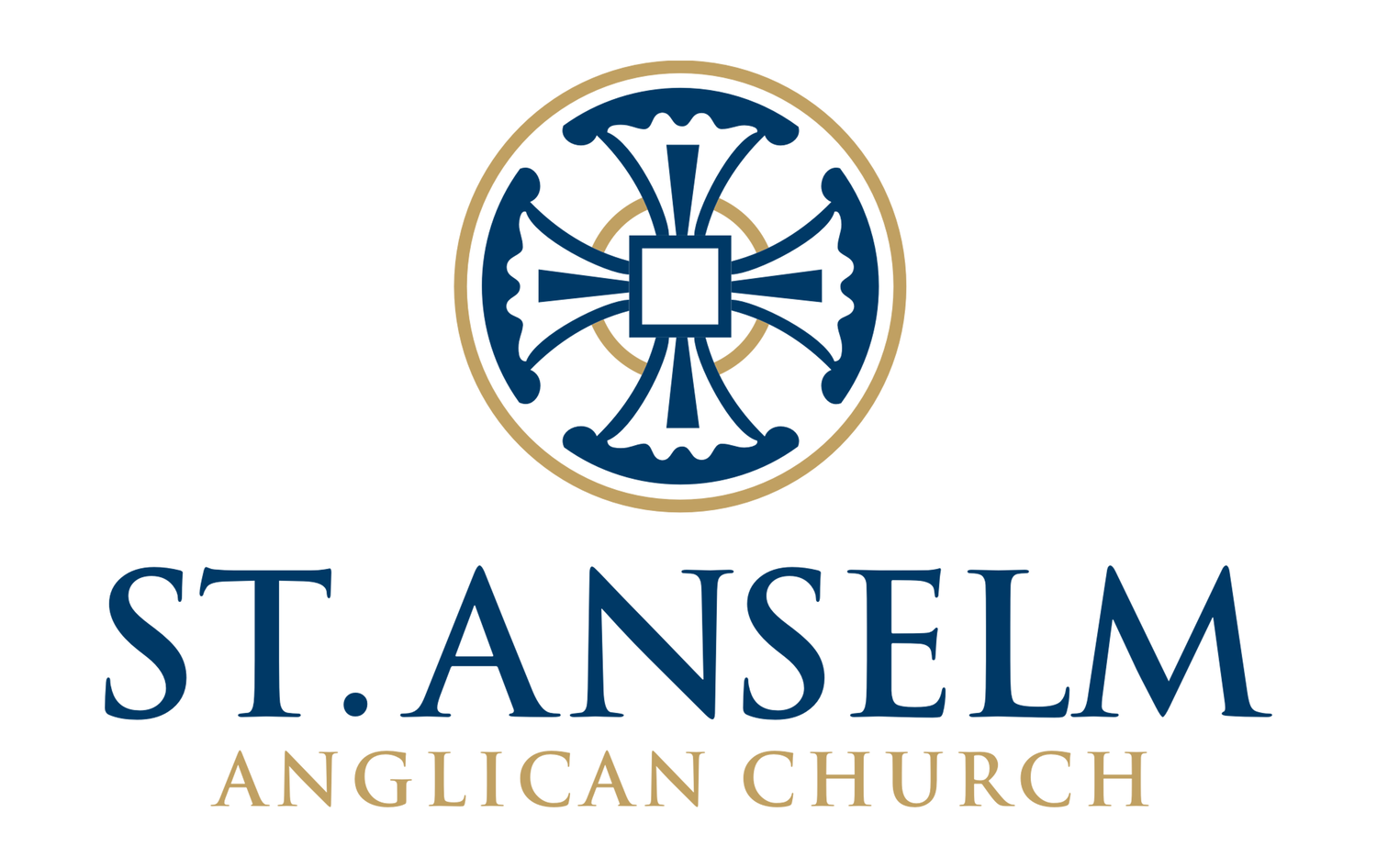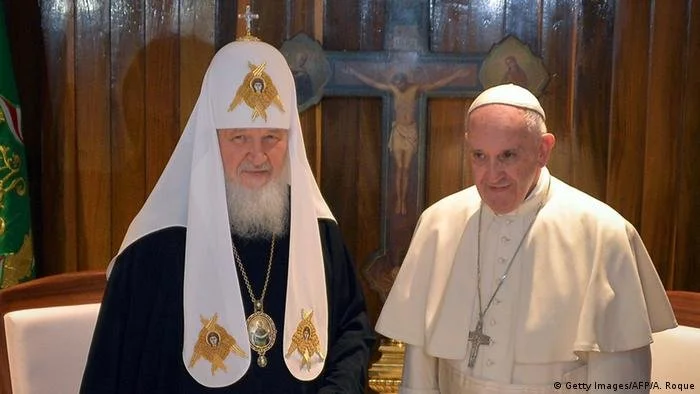The True Church: Antiquity does not Equal Truth
”Why are you not Eastern Orthodox?”
”Why aren’t you Roman Catholic?”
I get asked this all the time - particularly because I am a high church Anglican. Maybe you have been asked this too. As I responded to someone recently, “Because I like being a Protestant.” (From Latin protestantem because we proclaim the Scriptures against a Church that had forgotten them.) At my core that is who I am. I stand with the Reformers who also greatly admired the Church Fathers and saw the Creeds as authoritative interpretations of the Scriptures, but not their equal. I believe the Church should hold Scripture as the highest authority - save Christ himself. I also believe in the Protestant view of the Church. That is is the Word of God (and Sacraments) that create the Church.
Anyone who knows me knows, I love antiquity and tradition, but I love Truth more and while the Church is called to guard it, I do not think any earthly Communion (Anglican, Roman, Orthodox) has a monopoly on it. I believe the Anglican Communion holds it best but we fall short too and should remain humble.
As a new parish in the Anglican Communion, our parish (St. Anselm) has drawn many people from American Evangelical and Mainline traditions. We have seen many people come through our congregation in search of something more rooted and solid. Usually they find it. Sometimes they move on. But whether they stay or move on, I often wonder, “What are they searching for?”
Many people make a key mistake in finding Anglicanism. They find it as an answer to seeking what is ancient and not what is true. They conflate verity and antiquity or, more plainly said, they confuse the old with the true. There is great wisdom and truth to be found in antiquity - to be sure - but the search is to find the Author of Truth (along with the Good, the Real and the Beautiful) and to worship him well. Mistaking antiquity with truth leads people to fall for the false claims (sales pitches) made by the Roman Catholic and some Eastern Orthodox that, “This is the Church that Christ Founded,” or “This is the true Church,” and “we hold the authority.”
Such claims make no sense prima facia (at first glance) if you stop and think about it for one moment. How can the Eastern or Western Roman Church be the “true” Church to the exclusion of the other? It is theoretically possible, but not likely. True, they have had a rapprochement but this is recent. Was God on the Eastern or Western side for 1,000 years? And of course, this does not even take into account Protestantism. Why the institutional claim to be the “true” Church? Because their ecclesiology demands it. When supreme authority (not just administrative or interpretive authority) is shifted from the Holy Scriptures to Pope or even Councils, the institution of the “true” Church must become the center of of authority. The mechanisms for good order become something more.
Unity and Disunity
The Anglican claim has always been that the Anglican Communion (and Church of England before it) exists within the one catholic and apostolic Church as a branch of it along with Roman Catholic, Eastern Orthodox, and Protestant communions. As the late Fr. MacKenzie wrote, the Anglican Way is a “cup or container” of the Faith, not the Faith itself. This has been the Anglican position from the beginning.
We believed Roman Catholics could be saved (see Richard Hooker’s pamphlet on it) even in the midst of the Reformation. No institution has the Faith in its entirety, only the ability to adhere to it more or less faithfully. This is just as no Apostle was given supreme headship over the Church of Christ.
When you think about it, does it really make sense that God abandoned the Eastern Church or the Western Church from AD 1054 up until the modern period? You have to believe this if you buy that the Roman Catholic Church’s claim to be the “true church” (they excommunicated the Eastern church) or the Eastern Orthodox claim to be the “true church” (they excommunicated the Roman western Church.) Even within the Eastern Orthodox and Roman Catholic Communions there are great divisions - the veneer of unity is sometime very transparent. Consider the Roman Catholic Church in Germany currently. Or consider that mess going on between the Patriarchate of Moscow and Constantinople right now. Anglicanism has it’s own messes but we also don’t claim to be “the true Church” only a part of it. I invite you to listen to the following interview with an Anglican who became Orthodox only to return to Anglicanism. One thing he says is,
The criticisms that many of the Orthodox have about the divisions in Protestantism fall flat because the reality is that it is just as true here (in Orthodoxy). - The Rev. Matt Joyner
What is the answer? where is the locus of Truth? How are Anglicans different? Well, while we give great weight to antiquity (and tradition) we do not see it as equal to the Truth of Scripture. For example, the 39 Articles of Religion values councils (Article XX.) and good order so long as it is consistent with the Scriptures (Article XXI.) Tradition is a matter of good order and not divine revelation (Art. XXXIV., 2019 BCP, 785) The Holy Scriptures are interpreted in light of the long-standing traditions of the Church catholic. But the traditions are not the truth itself and are not anywhere equal in authority to the Scriptures. We claim this is what the Church Father’s themselves thought.
How do I know what real authority is and where it lies?” When I look to the Apostolic Fathers I see an appeal to Scriptures as the ultimate authority.” - The Rev. Matt Joyner
The Eastern Orthodox and Roman Communions claim antiquity. Anglicanism also has a claim to antiquity (and so do the Oriental, Ethiopian, Coptic, and other as well). To cite this as the mark of the true Church to the exclusion of other communions is foolishness. What is puzzling is why so many buy it. The true church will only be revealed at the last judgement.
Archbishop of Canterbury Michael Ramsey and Pope Paul VI meeting in 1966
The primary place of Authority lies not in church institutions, but Holy Scripture the Word of God. There is a place for Church authority. Within communions it is valid and binding so long as it is not found in violation of the Word of God but the two should not be confused. I found the following video a great resource and I hope you do too. It is long, so you will want to break it up. Thank you, Andrew Costa for sharing it with me.
https://youtu.be/cXom3oB2M8o



